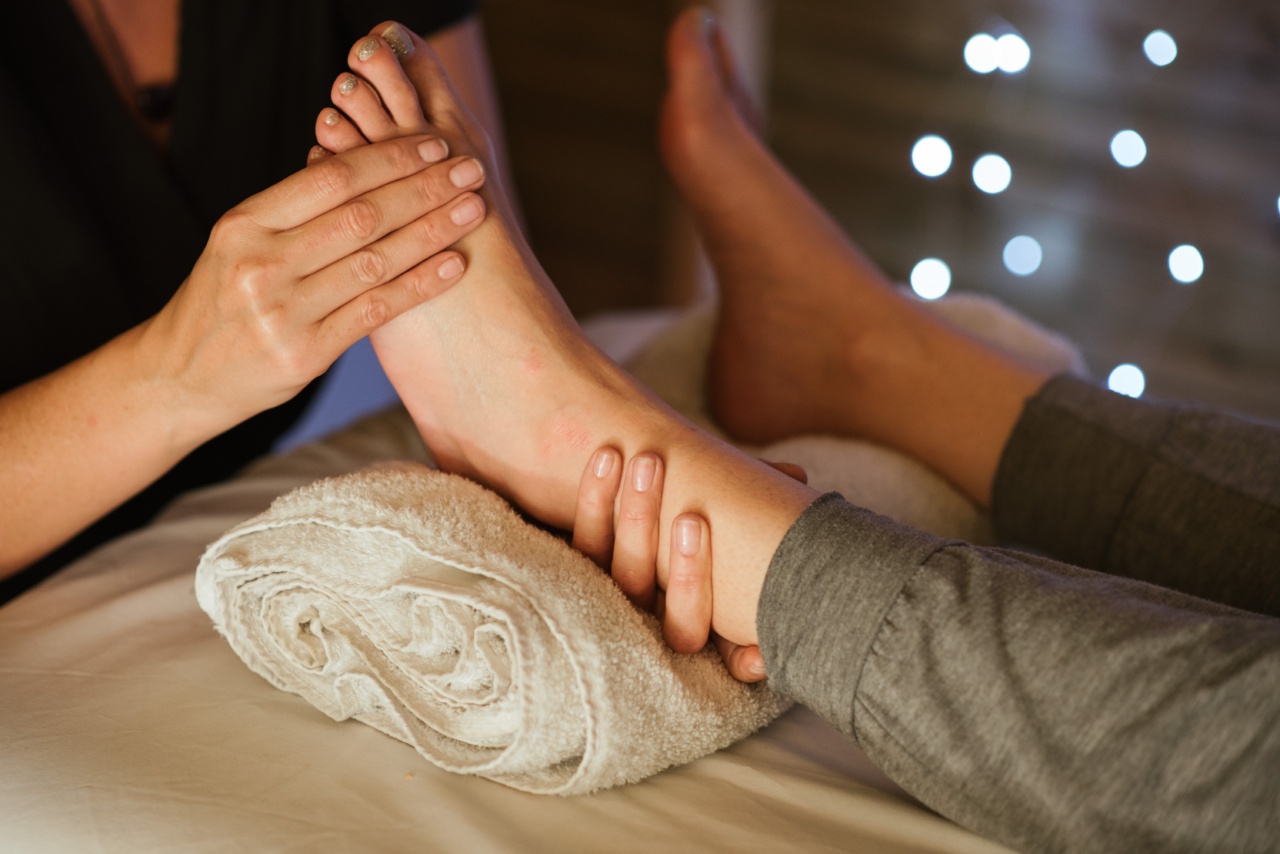Diarrhea is a common digestive disorder characterized by frequent, loose, and watery bowel movements. It can be caused by various factors such as viral or bacterial infections, food intolerance, medication side effects, and underlying health conditions.
While most cases of diarrhea resolve on their own within a few days, it is important to know the methods and techniques for treating diarrhea to alleviate symptoms and promote faster recovery.
1. Stay Hydrated
One of the most crucial aspects of diarrhea treatment is to stay hydrated. Diarrhea leads to excessive fluid loss from the body, contributing to the risk of dehydration.
Make sure to drink plenty of fluids such as water, clear broths, herbal teas, or electrolyte-rich beverages like sports drinks or oral rehydration solutions (ORS).
2. Oral Rehydration Solution (ORS)
An oral rehydration solution (ORS) is a specially formulated solution that contains the right balance of electrolytes, sugars, and water to replenish lost fluids caused by diarrhea and prevent dehydration.
These solutions are available over-the-counter in pharmacies or can be made at home using a mixture of salt, sugar, and water. ORS should be sipped slowly and consumed in small amounts frequently.
3. BRAT Diet
The BRAT diet is a popular approach for easing diarrhea symptoms. BRAT stands for bananas, rice, applesauce, and toast, which are all bland, low-fiber food choices that can help firm up the stools.
These foods are gentle on the stomach and provide essential nutrients while being easy to digest. However, it is important to note that the BRAT diet should not be followed for an extended period as it lacks certain nutrients.
4. Probiotics
Probiotics are beneficial bacteria that promote a healthy gut microbiome. They can help restore the natural balance of bacteria in the intestines and alleviate diarrhea symptoms.
Probiotics are available in the form of supplements or can be found in certain foods such as yogurt, kefir, sauerkraut, and kimchi. Including probiotic-rich foods in your diet or taking a high-quality probiotic supplement can aid in speeding up recovery.
5. Avoid Certain Foods and Beverages
During episodes of diarrhea, it is advisable to avoid certain foods and beverages that can worsen symptoms.
These include greasy or fried foods, spicy dishes, caffeine, alcohol, dairy products (if lactose intolerant), carbonated drinks, and artificial sweeteners. These substances can irritate the digestive system and further aggravate diarrhea.
6. Medications for Symptom Relief
In some cases, over-the-counter medications can be used to relieve diarrhea symptoms. Anti-diarrheal medications, such as loperamide, can help slow down bowel movements and reduce the frequency of loose stools.
However, these medications should be used with caution and only under the guidance of a healthcare provider, especially in certain situations such as bacterial infections or if blood is present in the stool. Self-medication is not recommended for prolonged or severe cases.
7. Rest and Self-Care
Resting and taking care of your body can play a significant role in the recovery process. Diarrhea can be physically draining, so getting enough rest and listening to your body’s needs is important.
It is also essential to practice good hygiene, such as washing hands thoroughly after using the bathroom and before eating, to prevent the spread of bacteria or viruses that may cause diarrhea.
8. Seek Medical Attention
Most cases of diarrhea resolve within a few days with self-care measures. However, certain situations may warrant medical attention. It is important to consult a healthcare professional if:.
- The diarrhea persists for more than two days
- There is blood in the stool
- Severe abdominal pain or cramps are experienced
- Dehydration symptoms, such as excessive thirst, dry mouth, dizziness, or decreased urine output, are present
- There is a high fever or persistent vomiting
9. Prevention Techniques
Prevention is better than cure when it comes to diarrhea. To reduce the risk of developing diarrhea, it is important to follow these preventive techniques:.
- Practice proper hand hygiene by washing hands with soap and water before eating and after using the bathroom
- Avoid consuming contaminated food or water by practicing safe food handling and choosing reputable establishments for eating out
- Ensure water sources are clean and safe by opting for bottled water or adequately purifying tap water
- Take necessary precautions during travel, such as drinking bottled water, avoiding street food, and maintaining hygiene practices
- Stay up to date with recommended vaccinations, especially for travel to areas where diarrhea-causing pathogens are prevalent
10. When to Introduce Solid Foods for Infants and Young Children
When infants or young children experience diarrhea, it is important to handle their diet with care. Breastfed infants should continue breastfeeding, as breast milk provides essential nutrients and can help recover from the illness.
For formula-fed infants, it may be necessary to provide oral rehydration solutions or consult a healthcare provider for guidance. Once the diarrhea shows signs of improvement, gradually introduce bland, easy-to-digest foods such as rice cereal, mashed bananas, or boiled potatoes. However, do consult with a pediatrician before introducing solid foods.






























